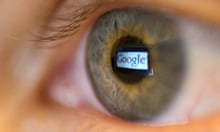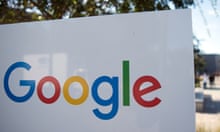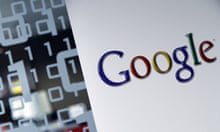Sir Tim Berners-Lee has warned that the world wide web, which he invented 28 years ago, has become an instrument of purposes he finds both sinister and corrupting, and in a letter released to mark the anniversary he warns that it is being turned against its users in three ways. They – we – have lost control of our personal data. It has made it astonishingly easy to spread lies and misinformation. And it is enabling sophisticated political advertising which plays on the precisely known personal weaknesses of its targets. All of these dangers are real and urgent. This paper has also warned against all of them. The problem comes with Sir Tim’s proposed remedies, such as they are. He is in the position of a civil engineer who has built a road for aid convoys to use and now finds it choked with tank transporters. The new problem can’t be solved entirely by better engineering.
The web, conceived as a means to spread democracy and decentralise knowledge, has also become an unparalleled instrument of surveillance and a means for small organised groups to spread lies to immense audiences, sometimes for political motives, sometimes simply for profit. But it turns out that when access to the world is so easy, most of the resulting traffic will be rubbish, little will be factually true and a great deal will be actively misleading. It’s all profitable, of course, for the companies that take a slice of advertising. This isn’t entirely new. Only a well-paid hack could look back at the years when print journalism was profitable and claim that all or even most of it was inspired by public spirit. But the slipperiness of the web, the way that it has shortened the interval between urge and reward, and the increasing sophistication of the algorithms used to keep people reading by supplying them with a little more of what they fancy than does them good, all make the problem larger and more urgent than it has ever been before. Earlier this week, MPs were rightfully vexed by the apparent ease with which Islamic State supporters and neo-Nazi groups could earn advertising revenue from their hate-filled YouTube videos.
The market has no answer to the question “How much money ought to be enough for Facebook (or Google)?”, except “more”. When companies can shop around for the most beneficial tax regime, there is no single government which could curb this greed either. The time when a cabal of high-minded engineers like Sir Tim could fix the technology completely to try to protect us against our own worst impulses feels as though it is past. That’s why the admirable technical solution Sir Tim is presently working on at MIT – a way of storing personal data that would restore control to the person collected from, rather than the entities collecting it – will spark a showdown, since it threatens fundamentally the business model of the whole advertising industry.
But it would be wrong to despair. Nations have come up with novel methods to police the web – this week the German government proposed fining social media companies up to €50m for not deleting fake news and hate speech within a day of a complaint. The contest between lies and truth is an arms race in which no victory for either side is permanent. Some techniques of advertising and propaganda, hugely effective in their day, have since been discredited by experience and common sense. The institutional fightback against troubling uses of the web may be insufficient, but some things are possible – which means they’re also necessary. Politicians must demand accountability, and so far as possible transparency, from the companies which base their decisions on algorithms. Even when institutions fail us we are not helpless as individuals. We learn from being lied to, even if the process can be horribly painful. The consequences of Trump and Brexit will offer any number of opportunities for learning in that sense. In the end, the web will be made trustworthy again by our own decisions about who to trust.









